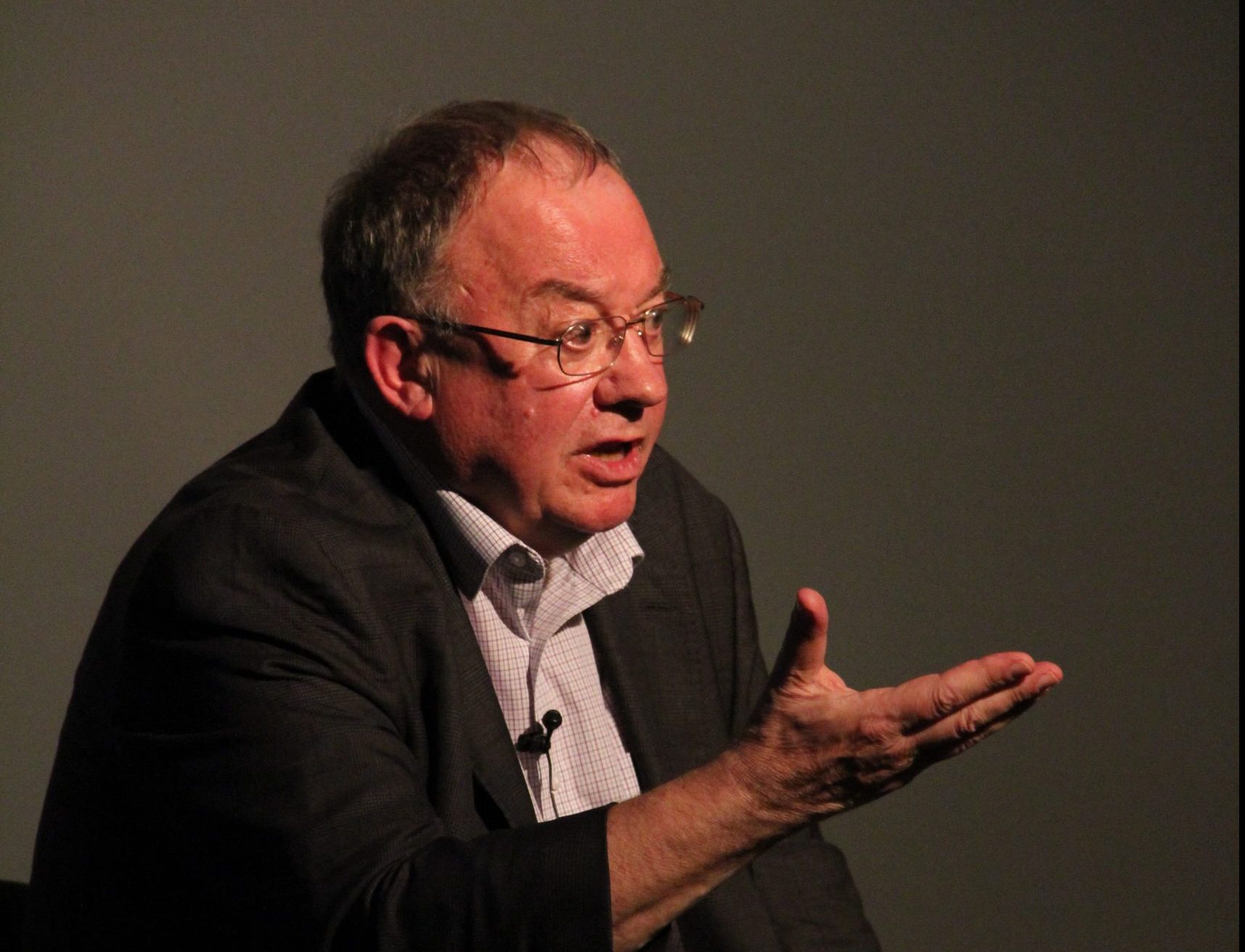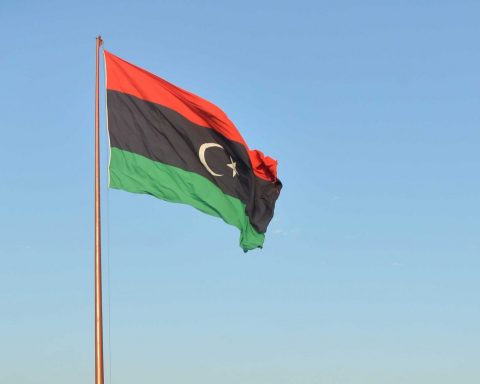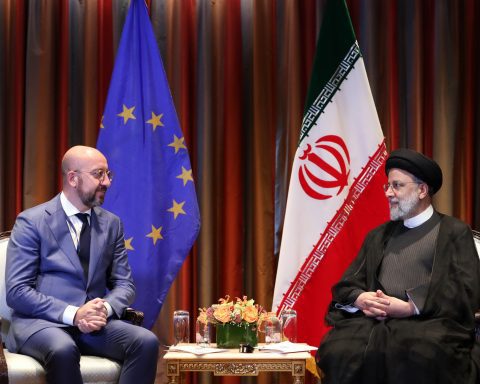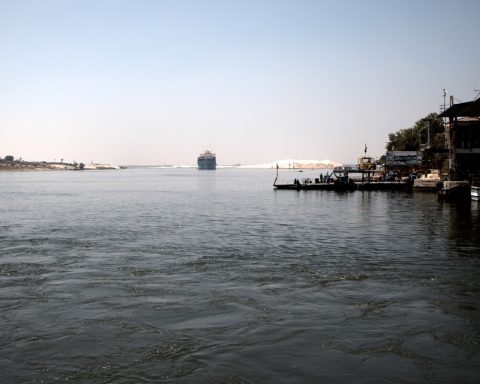What are the new political and geopolitical imperatives that changed the MENA region in the aftermath of the US invasion of Iraq in 2003 and the Arab uprisings of 2011 and 2019?
Professor Olivier Roy: The first point is the weakening of what remains of pan-Arabism and Arab nationalism. Even though we knew that it was more rhetoric than a real strategy, there was an apparent consensus on symbols, such as support for the Palestinian cause, especially as public opinion remained sensitive to this rhetoric of Arab nationalism. This, of course, was done in several stages. The American invasion of Iraq, which gave power to the Iraqi Shiites, and the invasion of southern Lebanon by Israel allowed Lebanese Hezbollah to emerge for the last time as the defender of the Arab world against ‘Zionism’. Though, the hanging of Saddam Hussein in 2007, the battle of Fallujah and, above all, the intervention of Hezbollah alongside Iran and Bashar el-Hafez at the Battle of Qoseir in 2013 definitively endorsed a new conflict: a Sunni Arab bloc against an Iranian-Shiite bloc (even if many Arab Shiites found themselves as defendants in this new configuration).
The bursting of Arab nationalism and the outbreak of the Arab Spring have rehabilitated the nation-state. It is the end of the great charismatic pan-Arab figures there is a demand for a democratic and competent nation-state, and there is a lack of solidarity with the Palestinians. Consequently, national interests have replaced pan-Arab solidarity. The field is now open to a ‘real politik’ which has allowed the recognition of Israel by many states without the ‘Arab people’ taking to the streets.
Ten years after the first wave of Arab uprisings, how do you assess the socio-political achievements of these Arab uprisings?
Professor Olivier Roy: The “objective” results on the political level are not very encouraging. If Tunisia and Sudan have experienced real democratic progress, in the other countries we have either had a civil war (Syria, Yemen, Libya) manipulated from the outside, or an even harsher return to authoritarianism (Egypt), or an impasse (Morocco, Algeria, Lebanon, Jordan).
However, in terms of sociology and political culture, we have a fundamental change which will permanently mark the political and strategic scene in the next twenty years.
The important point is the entry into politics of a new generation. This generation is more educated than that of their parents, more mixed in terms of gender (female participation), more informed thanks to the internet, less ideological, patriotic but not overly nationalistic, less interested in religion, and wary of charismatic leaders or major ideologies (pan-Islamism, pan-Arabism, etc.). This generation will occupy the political scene for the next twenty years.
A second wave of popular anger arose two years ago in Algeria, Sudan, Lebanon, and Iraq. What do you think of this dynamic of change in the region?
Professor Olivier Roy: This shows that the Arab Spring is not a flash in the pan but corresponds to a tidal wave not only in the political but in the sociological sense as well. The problem is that this new generation has not provided political leaders. Therefore, there is a growing decoupling between the population and the political class. The other dimension is that the new waves of protest do not remotely fit into the framework of the dominant geostrategic blocs. First, the protesters reject sectarian blocs particularly in Lebanon and Iraq, such as the opposition between a Shiite front and a Sunni front.
Is the issue of political Islam or Islamism is still a relevant topic in MENA countries, despite the emergence of radical transnational armed groups like Al-Qaeda and the Islamic State?
Professor Olivier Roy: I don’t think so. The Muslim Brotherhood is no longer a central part of political life in any Arab country. Either they have become trivialized, as in Tunisia, where they appear simply as a conservative party, or they have been repressed, as in Egypt, but have lost popular support because they mismanaged the period when they were in power. On the other hand, there is a gap everywhere between the old members of the Muslim Brotherhood and the younger members.
The jihadist movement, for its part, does not fit into national political logic. It precisely claims to ignore and exceed them (ex. The rejection by ISIS of the Sykes-Picot line). Yet, national borders and identities have, in fact, strengthened everywhere over the past twenty years. Global jihad in the Arab world is no longer in tune with national social and political dynamics. This is why it only exists by attracting “global” jihadists from abroad. But this is obviously not the case with the local approaches in the periphery of the Middle East (Nigeria, Mali, Mozambique, Somalia) which are based on local perspectives and are much less connected to the global jihad.
What is your observation on the changes underway in the MENA region, and, in particular, the growing role of Turkey in the region?
Professor Olivier Roy: One of the key elements is the US withdrawal, which began with Obama and continues with Biden. The geo-strategically absurd intervention in Iraq was the peak and the beginning of the end for American influence.
Suddenly the vacuum attracts, by definition, external interventions, but none replaces that of the Americans. None of the intervening states (Turkey, Russia, Saudi Arabia, Iran, but also possibly Egypt and Israel) can put 100,000 men into a war, neither mobilize a large air fleet nor operate a maritime blockade. All these interventions are carried out with small means by focusing on local subcontractors who have their own agenda. We must also respect the red lines that each puts to the other. Thus, there is a complex game in which there is no clearly defined camp. Turkey is opposed to Russia in Libya, co-manages Syrian chaos with Russia and allies with Russia in support of Azerbaijan. Elsewhere, Russia is working with Iran in Syria, but against Iran in the Caucasus. As in the days of ISIS, we, therefore, have a permanent reversal of alliances. This set of reverse alliances are constructed on a micro-level.
There is a glimmer of hope coming from Libya to follow through on the formation of a new Government of National Unity until December 2021. Could a similar scenario take place in Yemen and Syria in the coming months?
Professor Olivier Roy: The key issue in these three countries is foreign interference. In Syria, Bashar is not about to negotiate. But if he loses all external support, he will have to accept “autonomy zones” for the Kurds in the northeast or for the HTS and Turkey in Idlib in the northwest. Foreign intervention is always justified by another foreign intervention. We go around in circles. We must put an end to this vicious cycle, especially since foreign interventions have established only chaos without ever being able to establish a new stable power.
How do you interpret the reconciliation of the Gulf countries? And in the long term, are we heading towards a prospect of relaxation between Ankara-Cairo?
Professor Olivier Roy: Conflicts between Gulf states are more pre-sessional issues than geostrategic rivalries. Once the egos have been put aside, it is possible to find a common ground.
The same goes for relations between Egypt and Turkey. There is no longer a clear Muslim Brotherhood that could take power, and therefore no more hope (or fear) of an alliance between countries led by the Muslim Brotherhood. So, the so-called great alliance with the Muslim Brotherhood never made sense to me, and it is no longer a prospect. So once this illusion is dispelled, nothing stands in the way of Turkish-Egyptian normalization.
Recently there was an attempted coup in Jordan. What is your take on this disturbing event, in knowing the important role of Jordan in the politics of the Levant, and in particular in the Israeli-Palestinian conflict?
Professor Olivier Roy: I don’t think this is a coup. It is, at best, a settling of scores in its inner circle. This does not and will not affect Jordan’s positioning in the region.
All MENA analysts note the lack of leadership from Arab countries in the region. Is this the end of Arab leadership in the region, as the region today resembles a non-Arab triangle between Ankara, Tehran, and Tel Aviv?
Professor Olivier Roy: At the moment that is true. There is no more leadership for two reasons. On one hand, the pan-Arab imagination has ended. On the other hand, no Arab country today has the necessary weight to be a great regional power. Egypt has demographic weight but no longer weighs militarily. It is an army that was funded by the Americans to not fight (especially against Israel) and it shows that it is an army for domestic use only. Egypt also lost its cultural leadership, which was very strong in the 1960s and 1970: a leadership that the Gulf states are trying to take.
Saudi Arabia tried to take this place of leadership by breaking out of its borders for the first time with the war in Yemen, but it was a costly failure. The Emiratis have a good army, but do not have the demographic clout to weigh on the region. Iraq and Syria are shattered, Algeria is paralyzed by the management of a gerontocratic elite, without vision and strategy. Finally, Morocco is more interested in Africa than in the Middle East.
The media close to the right and the far right in France see the government of President Erdogan as the leader of “Sunni Islam” and the voice of the Muslim Brotherhood movement. Are these judgments justified or are they just a characterization against Turkey?
Professor Olivier Roy: The media are taking Erdogan at his word which must please him, but there is no concrete strategy behind this staging of Ottoman aspirations. Turkey’s interventions are around its borders, which is normal. It secures them by creating a zone of influence on the other side: in Idlib, in northeastern Syria, and northern Iraq. It is not expansion, it is defensive, and it is not going to get far anyway. From Aleppo to Karabakh, it is the Russians who hold the ground. As for the breakthrough in Libya, it is purely cyclical and played rather well by Turkey.
As for the control of the Turkish diaspora in Europe, it has always been Ankara’s objective. The Turkish community in Europe is far from being homogeneous on the religious level, and it faces the risk of witnessing a backslash on the part of European countries against the influence of Ankara in the name of the fight against Islamism. This is what is at stake around the Strasbourg mosque. In any case, nowhere in Europe does the Turkish diaspora have electoral weight in the sense of supporting Ankara. The Turks in Europe who vote do so according to the political issues of each European state, not according to the interests of Turkey.














